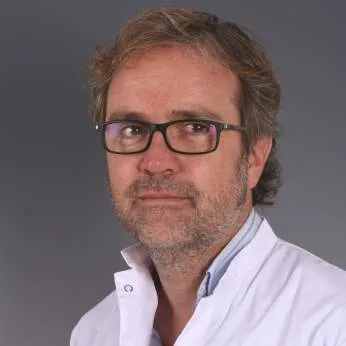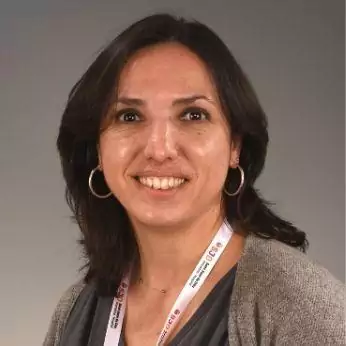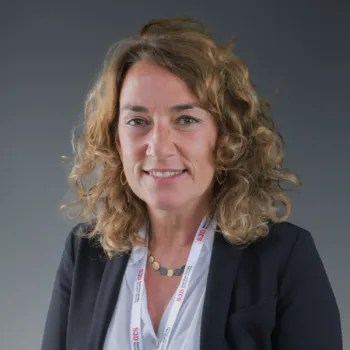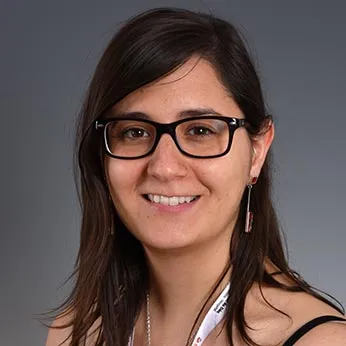
The Early-onset Psychotic Disorders Unit at the SJD Barcelona Children's Hospital offers diagnostic and therapeutic services to patients with a psychotic disorder that originates in childhood and adolescence.
This unit is integrated into the Programme of Specific Attention to Early Psychotic Disorders (PAE-TPI), part of the Master Plan on Mental Health and Addictions (PDSMiA) from the Generalitat de Catalunya, and it offers multidisciplinary care through the Primary Care Network for Severe Mental Disorders.
From this unit, created in 2006, we work as per the protocol established in the SJD mental health network, coordinating with the following entities: Child and Adolescent Mental Health Centre (CSMIJ), Day Hospitals, Specialist Treatment Units, the ITAKA Acute Hospitalisation Unit, and Juvenile Psychiatric Emergency Care. In this way, we can ensure an equally comprehensive assessment, diagnosis and treatment process for patients with psychotic disorders or those at high risk of psychosis (categorised as Clinical High Risk).
General objectives of the unit:
- To offer specialist care for psychiatric disorders included in the SJD service repertoire.
- To equalise the diagnostic and therapeutic processes within the SJD healthcare network.
- To identify patients with incipient psychotic symptoms so as to take preventive action.
- To assess highly complex cases and render diagnostic second opinions, as per the established functional plan.
The importance of a proper diagnosis and early treatment
Psychotic disorders tend to manifest between the ages of 15 and 30 years old. Detection and intervention at these early stages is a key influencing factor on both the patient's quality of life and their prognosis.
Adolescence is a crucial stage of development, and treating these kinds of mental health issues at this stage of development can both significantly improve the patient's prognosis and also reduce the suffering of the patient, their family and those around them.
The Early-onset Psychotic Disorders Unit provides interdisciplinary outpatient-based care to patients who have been evaluated in the Emergency Department or who have been admitted to the Acute Hospitalisation Room (24-hour hold) until they can be properly referred on to the appropriate community care network (CSMIJs, Day Hospitals, or Adult Mental Health Centers for patients deemed adults at the time of referral).
Furthermore, there are specific services offered—such as differential diagnoses, specialist diagnoses, or a second-opinion diagnoses—when rendering a diagnosis is more difficult. Targeted treatments are also offered, such as cognitive stimulation or group treatments for families.
These interventions are offered after referral from a mental health service provider: to patients, their families, and those around them.
To provide a diagnosis and thorough assessment of all suspected cases of a psychotic disorder or Clinical High Risk cases.
Assessment and diagnosis
To provide a diagnosis and thorough assessment of all suspected cases of a psychotic disorder or Clinical High Risk cases.
For cases that are referred on to us due to diagnostic uncertainties, we offer any comprehensive assessments that are deemed necessary in coordination with the community care system and with other units in the Mental Health Area or other departments at the SJD Barcelona Children's Hospital.
Diagnostic protocols
A standardised psychiatric and psychological assessment of each of our patients is carried out in order to obtain the most accurate diagnosis possible, in line with clinical guidelines established by the wider scientific community.
Diagnoses may include:
- Definitive diagnosis of a psychotic disorder: Schizophrenia, unspecified psychosis, affective disorders with psychotic symptoms.
- Presumptive diagnosis: Clinical High Risk for psychosis.
Protocols include:
- Standardised psychiatric and psychological assessment, with structured clinical and psychopathological interviews, as well as any relevant clinical-diagnostic assessment scales.
- Psychological and neuropsychological assessment.
- Evaluation of biological parameters (imaging studies and blood tests).
Clinical guidelines
Treatment has been a fundamental part of good clinical practice guidelines and evidence-based interventions to date.
Treatment
Treatment has been a fundamental part of good clinical practice guidelines and evidence-based interventions to date.
It consists of various intervention programs, to which patients are assigned based on their individual needs and their personalised therapeutic plan.
Some procedures are applied to the patients themselves, others to the family, and others target the socio-academic network. Treatment is administered in coordination with community entities.
Therapeutic interventions
- Drug treatment.
- Psycho-educational group for patients and family members.
- One-to-one psychology treatment.
- Cognitive behavioral therapy.
- Psychotherapeutic support.
- Cognitive stimulation and rehabilitation.
- Social skills group for patients and families.
- Follow-up and assessment program for side effects of antipsychotic treatments. Coordination with the Endocrinology Department, if needed.
- Programs coordinated with the Addictions Unit for cases of co-morbidity.
Specialist interventions at the unit
Psychoeducational group for patients and family members
Psychoeducational treatment is aimed at patients who have exhibited their first psychotic episode. It is conducted at the SJD Barcelona Children's Hospital in Esplugues de Llobregat and adopts a collaborative, cognitive-behavioral format, based on the stress-vulnerability model.
The aim is to provide tools and resources to family members so they can understand the difficulties associated with the symptoms of children with psychotic disorders, and to encourage healthier coping mechanisms, leading to a better prognosis and clinical course for the patient.
Computerised cognitive stimulation therapy
Highly specialised treatment backed by solid evidence. It consists of 40 sessions, two per week: one in-person session and one remote online session, both lasting 45 minutes.
Pre/post assessment – Social skills group for patients and family members. The therapy is carried out at the SJD Barcelona Children's Hospital in Esplugues de Llobregat.
Why the SJD Barcelona Children's Hospital?
The Early-onset Psychotic Disorders Unit is part of the SJD Barcelona Children’s Hospital, a tertiary care facility that boasts all pediatric specialisms typically involved in treating children with psychotic disorders (Pediatrics, Neurology, and Endocrinology, among others).
This close collaboration allows for fast and effective communication between professionals and other hospital specialisations, as well as easier carrying out of required additional tests (neuroimaging, blood tests, etc.) when there is a differential diagnosis for an initial psychotic episode.
All of this allows for a comprehensive response to cases with highly complex diagnostic and therapeutic aspects.
Accessing the Early-onset Psychotic Disorders Unit
Families can access the Early-onset Psychotic Disorders Unit when their primary place of residence is in the Hospitalet de Llobregat area or in the Baix Llobregat, Alt Penedès, Vallès Occidental, Anoia or Garraf comarcas. Any other areas in Catalonia will have their own dedicated facility assigned by the Catalan Health Service.
Patients can be referred to the unit from any Child and Adolescent Mental Health Centre (CSMIJ) facility, from a Day Hospital, from a hospitalisation ward, or from any emergency psychiatric appointments of the SJD Barcelona Children's Hospital.
Admission criteria
- Children and adolescents under the age of 18.
- Presence of psychotic symptoms, including two or more of the following: delirium, hallucinations, nonsensical language, catatonic or disorganised behavior and negative symptoms, whether newly presenting or already diagnosed. The symptom must have been present for at least one week.
The importance of raising awareness in the wider population
As well as direct intervention for those affected by a psychotic disorder and their family members, it is also important to educate the wider population in order to reduce the stigma often associated with these types of severe mental disorders.
Understanding these disorders is the foundation for being able to bust myths and correct preconceived notions that can add to the suffering inherent to said disorders.
As such, with the aim of raising awareness, unit staff are collaborating on the SOM Mental Health 360 project—a project promoted by various centers implicated with the Hospitaller Order of Saint John of God—which boasts the involvement of dozens more entities in various areas of the field of mental health (associations, foundations, social entities, etc.).
Questions about psychotic disorders?
Visit the SOM Mental Health 360 website for more useful information about various types of psychotic disorders, symptoms and warning signs, and treatment or prevention of relapses. You can also ask the expert team any questions you have.

Team
Professionals from the Early-onset Psychotic Disorders Unit come from various different disciplines and are experts in the specialist diagnosis and treatment of psychotic disorders and severe mental health problems.
The team consists of clinical psychiatrists and psychologists, a therapeutic education specialist teacher, social workers, and a mental health nurse, all working together to provide a coordinated response to patients.


Research and clinical trials
Staff from the Early-onset Psychotic Disorders Unit are involved in various national and international projects—both their own research and collaborative research—on children and adolescents that are exhibiting their first psychotic episode and those with Critical High Risk mental states. Research is conducted by the Child and Adolescent Mental Health Research Group at the SJD Research Institute (IRSJD).
This research covers from basic clinical aspects up to highly specialised technology (neuroimaging with Diffusion Tensor Imaging - DTI, basic psychology profiling with cognitive paradigms, etc.).
One of the most relevant lines of research is the investigation into psychosis risk markers to create early detection and intervention strategies for psychotic disorders, with the ultimate aim being to delay or to prevent these disorders.
As a result of this research, the unit has been able to produce various scientific publications within the framework of the Child and Adolescent Mental Health Research Group, and has participated in national and international symposiums on the matter.
The Early-onset Psychotic Disorders Unit has been involved in several research projects over the years.
Projects by the Early-onset Psychotic Disorders Unit
- PI21/00090. Estudio multicéntrico longitudinal sobre marcadores de predicción de la transición a psicosis en niños y adolescentes con riesgo de psicosis: el papel del estrés intrauterino. Instituto de Salud Carlos III (ISCIII). Desde 01/01/2022 hasta 31/12/2024. Dolz Abadia, Montserrat.
- Factores de protección en niños y adolescentes con síndrome de riesgo de psicosis. Torrons Vicens SL. Desde 01/01/2023 hasta 31/12/2024. Tor Fabra, Jordina.
- PI21/00067. Impact of Traumatic Childhood Experiences (TCE) on cerebrocortical parameters and cognitive functioning in patients with a First-Episode Psychosis (FEP). Instituto de Salud Carlos III (ISCIII). Desde 01/01/2022 hasta 31/12/2024. Usall i Rodié, Judith.
- Cognitive Reserve in children and adolescents with psychosis risk syndrome: the CORE-CAPRIS study. CONSORCIO CIBER PARA EL AREA TEMATICA DE SALUD MENTAL (CIBERSAM). De la Serna Gómez. (Hospital Clínic de Barcelona). 01/05/2021- 30/04/2023. 19.000 euros.
- PI15/00509. Estudio multicéntrico longitudinal sobre marcadores neurobiológicos de estrés en niños y adolescentes con síndrome de riesgo de psicosis y la transición a psicosis. Instituto de Salud Carlos III (ISCIII). Desde 01/01/2016 hasta 31/12/2020. Dolz Abadia, Montserrat.
- Marcadores Neurobiológicos de Estrés para el Riesgo de Psicosis: el Papel del Cortisol y la prolactina. Fundación Alicia Koplowitz. Desde 01/11/2015 hasta 30/04/2018. Dolz Abadia, Montserrat.
- PI11/02684. Estudio multicéntrico longitudinal sobre características clínicas, cognitivas y de neuroimagen en niños y adolescentes con Síndrome de Riesgo de Psicosis. Instituto de Salud Carlos III (ISCIII). Desde 01/01/2012 hasta 30/06/2016. Dolz Abadia, Montserrat.
- Projecte Si Famílies! Suport inclusiu d’atenció psicològica i social per a famílies amb infants i adolescents afectes de trastorns psicòtics. (Fundació Molins, (01/12/2020-31/12/2021).
- Intervención psicosocial y familiar en niños y adolescentes con psicosis y riesgo de psicosis. Tratamiento integrado con Psicoeducación, Habilidades sociales y Rehabilitación cognitiva (Ayudas IRPF (2015-2016)).
- Placebo-controlled trial in ultra-high risk for psychosis with omega-3 fatty acids in Europe (PURPOSE; EudraCT_2015-003503-39) (2016-2021).
- Impacto de la interacción de los factores protectores y de estrés psicosocial en la aparición y pronóstico de un primer episodio psicótico (PI17/00111).
- Caracterizando la recodificación espacial de la altura tonal y la intensidad acústica en condiciones psicológicas normales y disfuncionales (PI15/00519).
- Reguladores de la expresión génica como predictores de diagnóstico y biomarcadores de déficits cognitivos y cambios en el grosor cortical en psicosis de inicio reciente (PI18/00213).
Teaching
The team of professionals at the Early-onset Psychotic Disorders Unit has been working alongside the Child and Adolescent Psychiatry and Psychology Departments at Hospital Clinic Barcelona since 2015 to organise the biannual Refresher course in early-onset psychosis. This training is offered on a national basis, but counts on the collaboration and involvement of clinical and research professionals on both a national and international scale.
The unit team also teaches on the continuing education courses offered by the Education and Monitoring Commission at PAE-TPI (Programme of Specific Attention to Early Psychotic Disorders), which is part of the Master Plan on Mental Health and Addictions by the Department of Health. Daniel Muñoz Samons, Coordinator of the Early-onset Psychotic Disorders Unit, is part of the education commission.
Finally, unit staff are actively involved in two international conferences:
- SIRS Annual Congress: This congress is part of the sessions organised by the Schizophrenia International Research Society (SIRS).
- European Conference on Schizophrenia Research (ECSR): A biannual event organised by the European Scientific Association on Schizophrenia and other Psychoses (ESAS). It acts as a forum for scientific debate, refreshing knowledge, research and clinical collaboration in the field of schizophrenia and other psychoses.
Resources for families
SOM Mental Health 360 website, containing clinical guidelines for families and adolescents, first-hand testimonials and specific articles about incipient psychosis, schizophrenia and the transition into adulthood.
A web resource on the fight against stigma and discrimination against people living with a mental health issue.
Informational document on schizophrenia created by the Spanish Society of Psychiatry and Mental Health (SEPS) (In Spanish).





